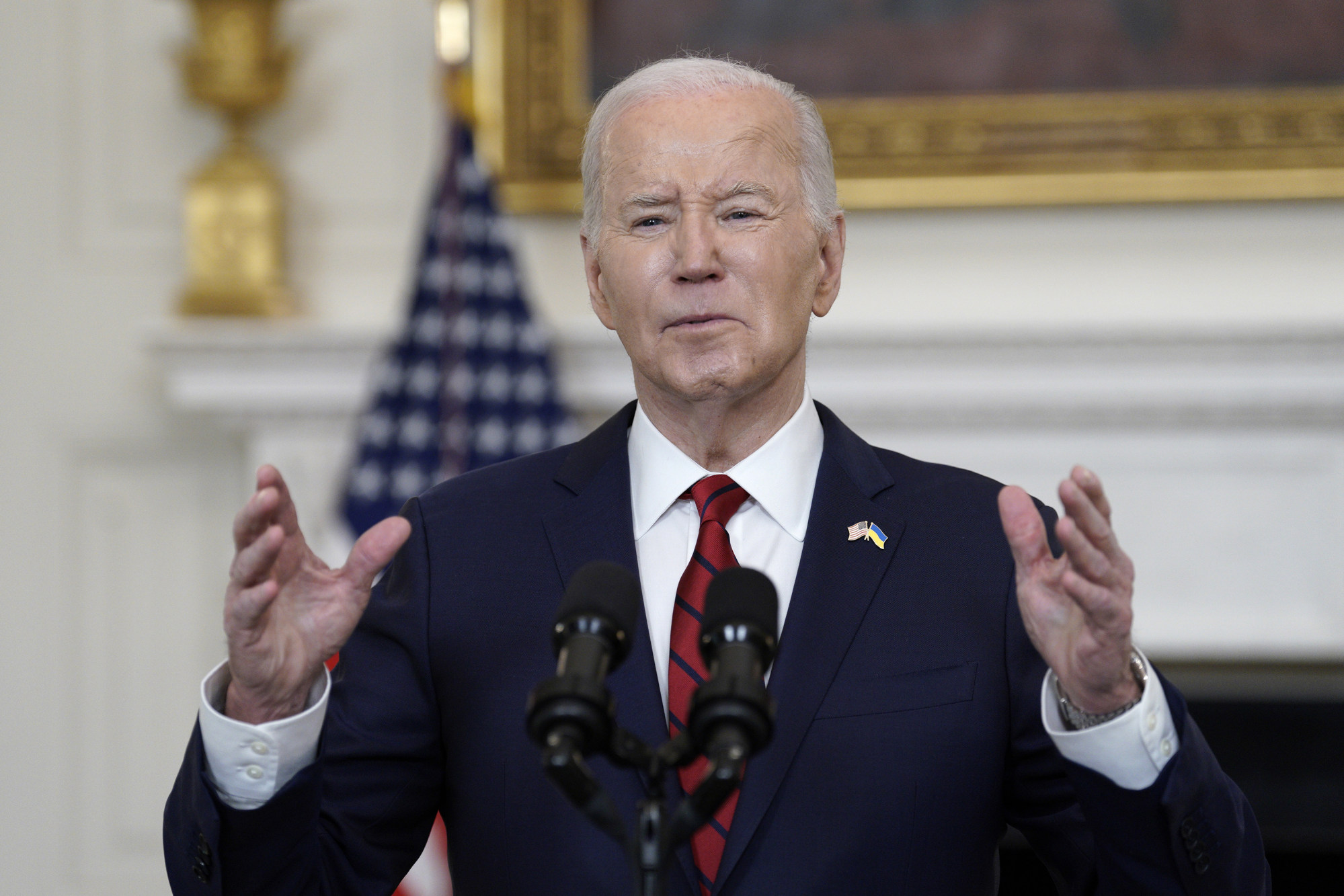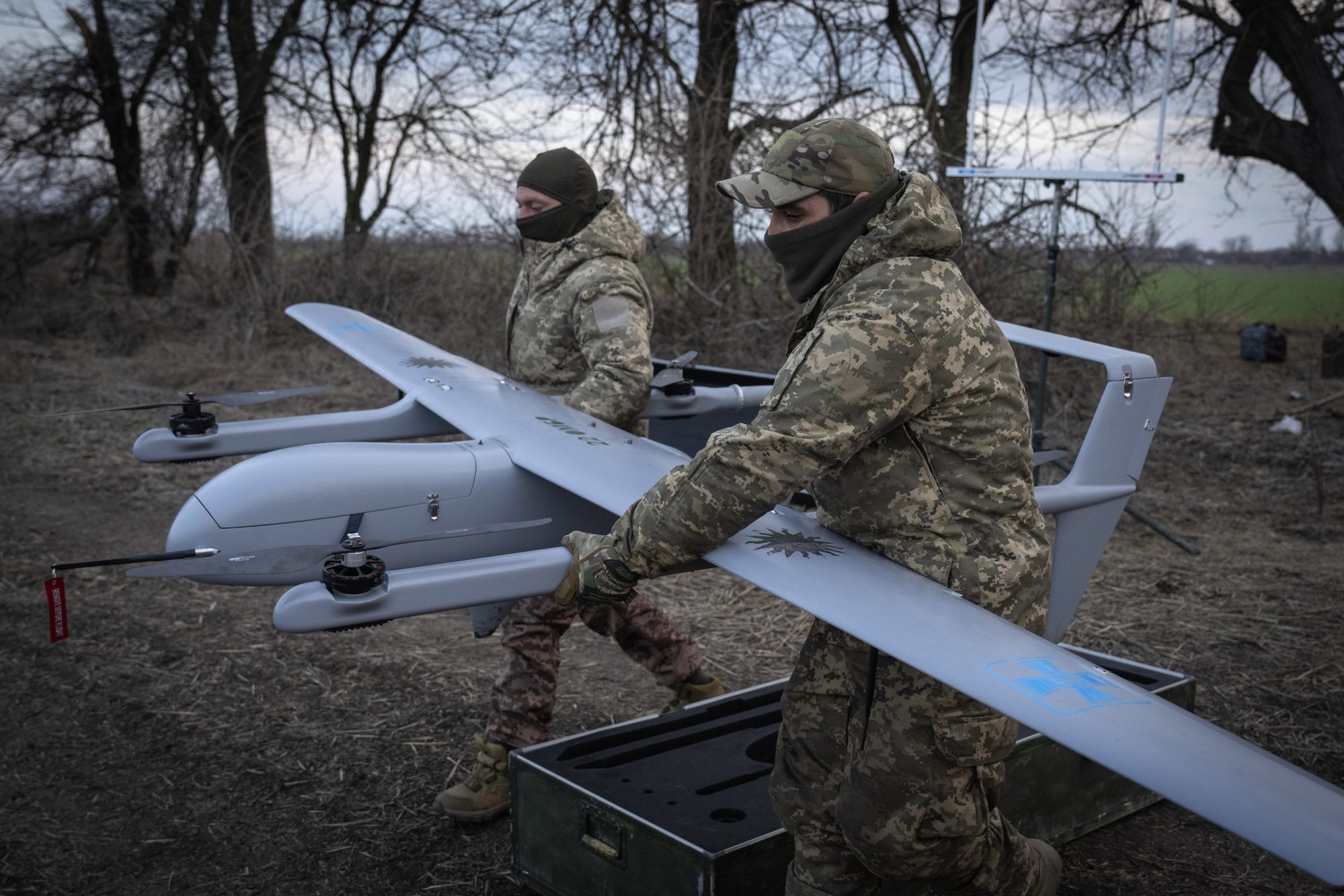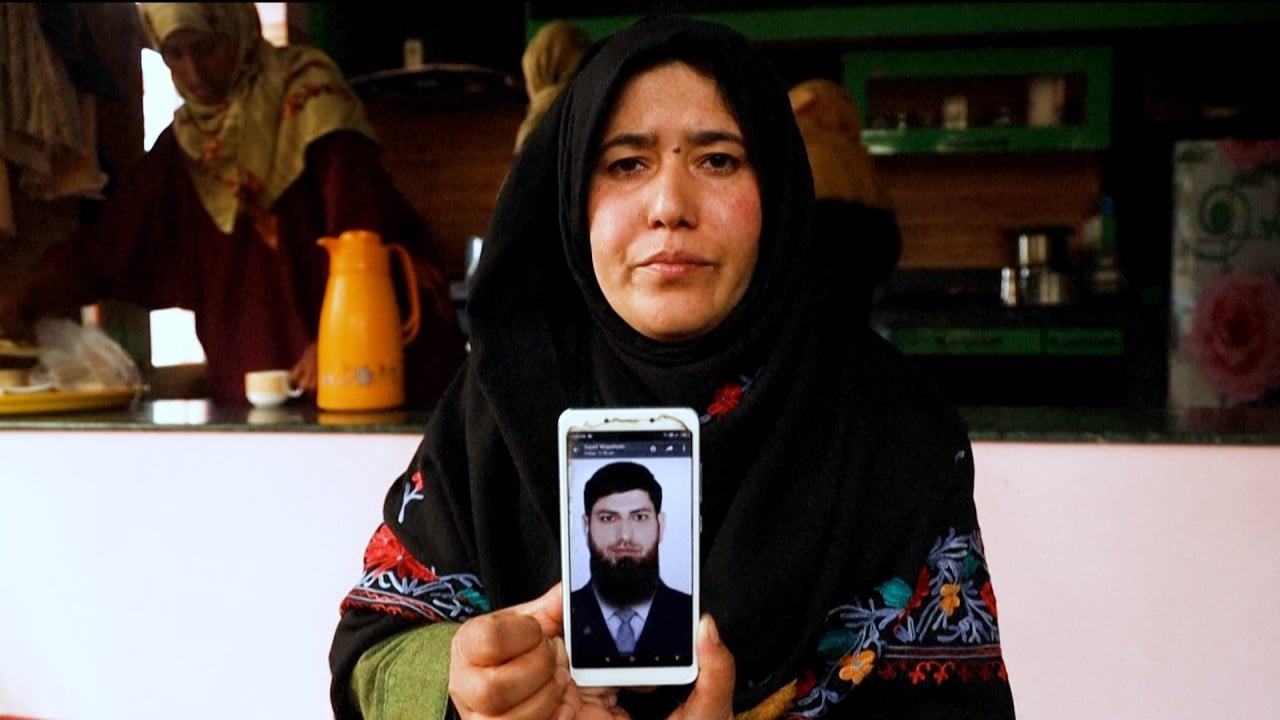Ukrainian President Volodymyr Zelensky also signed two other laws on Friday, allowing prisoners to join the army and increasing fines for draft dodgers fivefold. Russia enlisted its prisoners early on in the war, and personnel shortages forced Ukraine to adopt the new, controversial measures.
Concerns about law
Oleksii, 68, who runs a car repair shop in Kyiv, worries his business will have to shut down as he expects 70 per cent of his workers will be mobilised. He asked that only his first name be used to allow him to speak freely.
“With the new law, people will be mobilised and we will have to shut down and stop paying taxes,” Oleksii said on Saturday.
It’s very difficult to replace workers because of their specialised skills. Most of them are already in the armed forces, he says, adding that the law is “unfair” and “unclear”.
Even essential municipal services will be affected. Viktor Kaminsky, the head of a municipal service department in Kyiv that fits households with heating and repairs utilities in public buildings, said he will struggle to replace mobilised staff and meet demand, even though the law allows him to retain half of workers deemed fit for service.
He said 60 of the 220 people working in Kaminsky’s department will be eligible to be called up. “If they take 30 people from what we have, the problem is we don’t have anyone to replace them,” he said.
“There are pros and cons to this law,” Kaminsky said. “It’s hard to avoid the mobilisation process now, compared to before when people were trying to get around it.” But, he said, it would be better if essential workers like his were granted more exemptions.
Ukrainian forces under strain
Ukraine has struggled for months to replenish depleted forces, as Russian troops are pushing ahead with a ground offensive that opened a new front in the northeast and put further pressure on Kyiv’s overstretched military.
After weeks of probing, Moscow launched the new push knowing that Ukraine suffered personnel shortages, and that its forces have been spread thin in the northeastern Kharkiv region.
Still, Moscow’s forces have pummelled Kharkiv with strikes in recent weeks, hitting civilian and energy infrastructure and prompting angry accusations from Volodymyr Zelensky that the Russian leadership sought to reduce the city to rubble. On Friday, Mayor Ihor Terekhov said that Russian guided bombs killed at least three residents and injured 28 others that day.
Moscow denies deliberately targeting civilians, but thousands have died or suffered injuries in the more than 27 months of fighting.

Volunteers and runaways
Rusyn is the head of recruitment for the 3rd Assault Brigade, one of the most popular among Ukrainian volunteers. He said he saw a 15 per cent increase in men joining the brigade, which fights in eastern Ukraine, in the past months. Most recruits are aged between 23-25, he said. For security reasons, he and his recruits asked to be identified by their call signs only.
“There is no alternative [to mobilisation],” said Rohas, a 26-year old recruit. “One way or another, I believe that most men will end up in the ranks of the armed forces and by joining as a volunteer, you still get some preferences.”
“Those who are afraid of being mobilised are not the ones hostage to this situation, it’s those [soldiers] who are standing in formations of three where there should be 10. Those guys are hostages to this situation and they should be replaced, so that’s why we are here,” Rohas said.
Many Ukrainians have fled the country to avoid the draft since Russia’s all-out invasion in February 2022.
The Supreme Court last month said that 930 people were convicted of avoiding mobilisation last year, a fivefold increase from 2022.

Around 768,000 Ukrainian men aged 18-64 had been granted temporary protection in European Union countries as of last November, according to data from the bloc’s statistical agency, Eurostat.
Kyiv has barred men under 60 from leaving the country since the start of the war, but some are exempt, including those who are disabled or have three or more children. The Eurostat data does not specify how many of the men who have qualified for protection belong to these categories, nor how many others reached the EU from Ukraine’s Russian-occupied territories in the east and south.
Unable to cross the border legally, some Ukrainian men risk death trying to swim across a river that separates Ukraine from neighbouring Romania and Hungary.
Late on Friday, Ukraine’s border service said that at least 30 people have died trying to cross the Tisza River since the full scale-invasion.
Romanian border guards days earlier retrieved the near-naked, disfigured body of a man that appeared to have been floating in the Tisza for days, and is the 30th known casualty, the Ukrainian agency said in an online statement. It said the man has not yet been identified.


